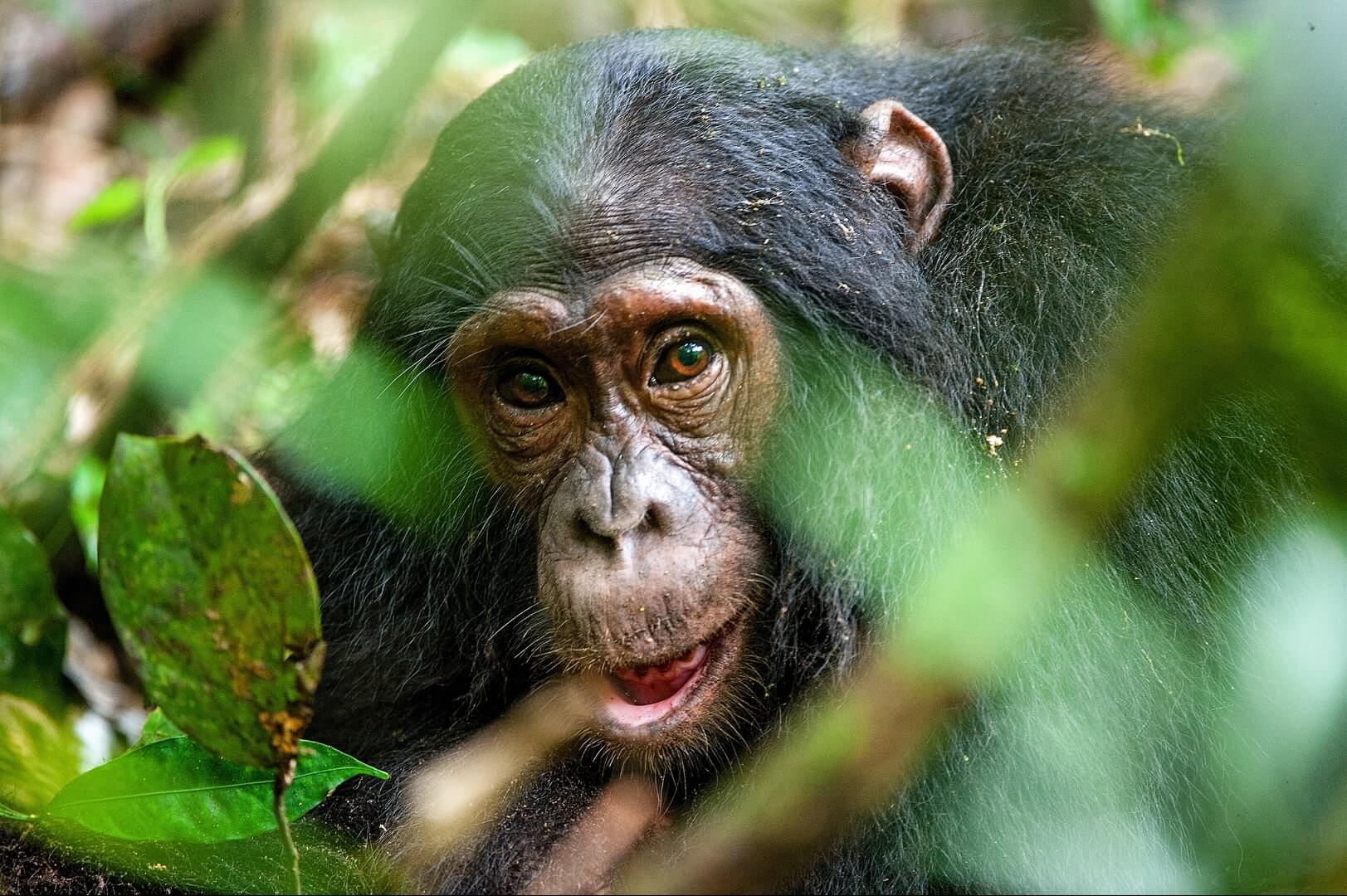Chimpanzees
Beyond the chimpanzees, Mahale is also home to varied bird life as well as other smaller primates. Relax on the shores of Lake Tanganyika and enjoy kayaking and other water activities in this piece of paradise.

When you find the chimps you are often in close proximity to them (sometimes they pass within a few feet of you) and because they’re habituated, they more or less ignore you. The length of the trek can vary greatly – The Chimps are sometimes literally at the back of the camp and other days they are nowhere to be seen – but on average you should expect to walk for about 2 –3 hours on well-defined paths in the forest, with occasional scrambling down less defined animal tracks. The pace set by the trackers is steady and aimed at the slower members of the group. You need to be reasonably fit, but many people find that the steep and sometimes slippery descents are more of an issue than the actual physical exertion.
There are about a thousand chimps living in the Mahale Mountains, divided into groups. One group – known as the Mimikire clan or the M-group – is accustomed to the presence of humans, because they have been close to Japanese researchers for decades. In fact, this group of 56 chimps is so comfortable around their relatives, they will walk up to you and look you in the eye!



